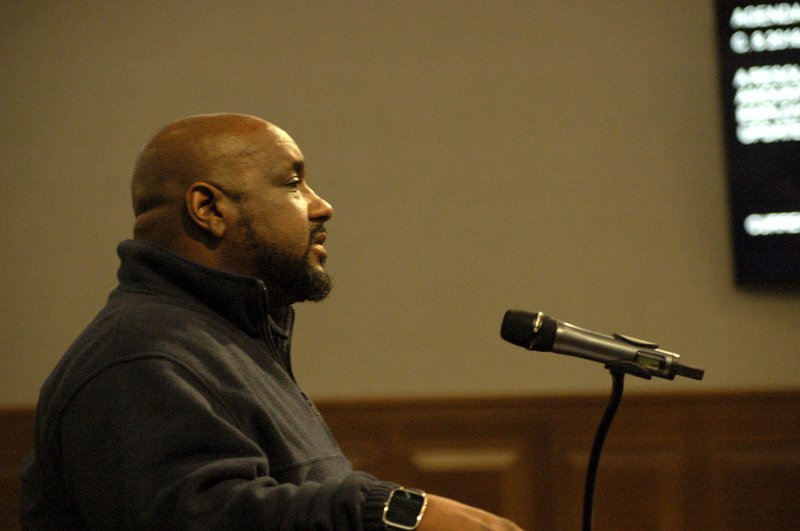FAYETTEVILLE -- Upgrading the pay structure for police and firefighters represents the maximum amount the city can give over the next few years, administrators said Tuesday.
The City Council passed 7-0 pay raises for uniformed and merit-based employees. Sworn personnel are on a step plan that increases regularly, while other employees get pay raises based strictly on performance.
Other items
The council also approved:
• Applying for a federal grant to improve the Fulbright Expressway trail tunnel.
• Using up to $440,000 in federal aid to light Rupple Road trail from Persimmon Street to Martin Luther King Jr. Boulevard.
• A $19,900 contract with Dewberry, Martin and Martin Consulting Engineers to update a 2005 facilities needs assessment for the Police Department.
Source: Staff report
City administrators use growth in sales tax revenue as a barometer for how much to give in raises every year, plus savings from the year before. Sales tax equates to about 60 percent of the revenue in the general fund, which serves as the city's main bank account.
A pay study released last year showed the city's firefighters trailed comparable cities in Arkansas and surrounding states by about 11 percent. Police pay lagged by about 15 percent. Mayor Lioneld Jordan formed a committee to look at the issue.
The measure the council adopted Tuesday will use about $1.4 million out of the general fund for the remainder of the year, or about $1.8 million with all departments. The full impact next year on the general fund will be about $1.9 million or nearly $2.5 million with all departments.
The plan essentially hurries the amount consultants recommended last year to get police and firefighters closer to the market study. Pay raises are an ongoing expense, so if sales tax grows by about 5 percent, the city should catch up to the expenses in about three years, Chief Financial Officer Paul Becker said. The general fund would be used to cover the difference. The city has averaged about a 4.5 percent sales tax growth over the past five years.
"We wanted to do as much as possible for police and fire," Becker said. "So we looked at it very, very hard and tried to see what the max was we thought we could do at this point and time to implement that 2017 study."
Detective Leonard Graves, representing the city's police union, said the committee helped refine future pay studies, laid the groundwork for a benefits study and examined the pay philosophy of the city. Graves encouraged city officials to keep the committee open.
"It was extremely important to us and our organization because it allowed us to feel that we had some input. We felt included," he said. "It gave us an opportunity for open dialogue."
Jordan said the decision on how much to devote to raises was not an easy one. The plan requires a little bit of a leap of faith, he said.
However, police officers and firefighters place their lives on the line every day, Jordan said.
"So I'm willing to risk something for them as well," he said.
In other business, the council voted 7-0 to adopt a welcoming plan for the city.
Augusta Branham, with the city's Communications Department, said the plan aims to increase Fayetteville's population of foreign-born residents, get more immigrants to participate in local government and make more documents and programs available in multiple languages.
The plan entails establishing information hubs in schools and at the library to make everyday life easier for foreign-born newcomers. Also, the city would continue to support regional public transit with travel routes available in multiple languages. A free course also would give adults an introduction to city government.
Emily Crane Linn, director of CanopyNWA, a nonprofit group helping settle refugees into the region, said the plan is indicative of the spirit of the city. However, a disconnect exists between that spirit and reality because of barriers for foreign-born residents, such as with language and basic services, she said.
"I think this welcoming plan is a terrific first step forward in overcoming those obstacles," Crane Linn said.
NW News on 04/04/2018


